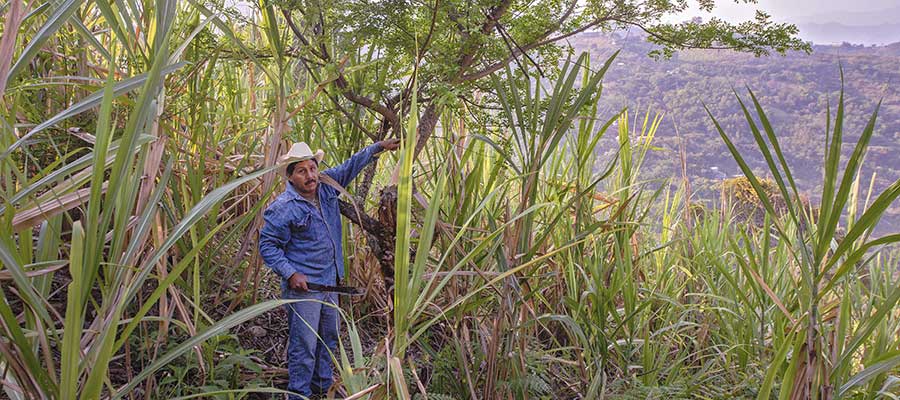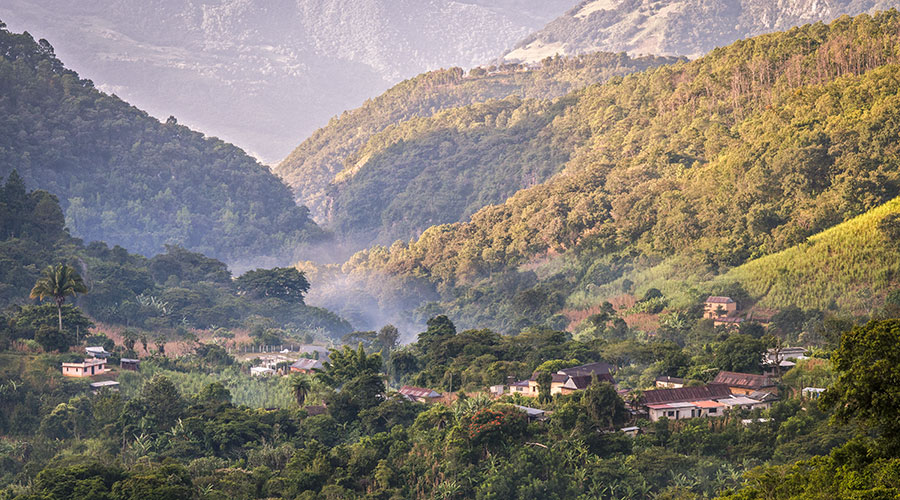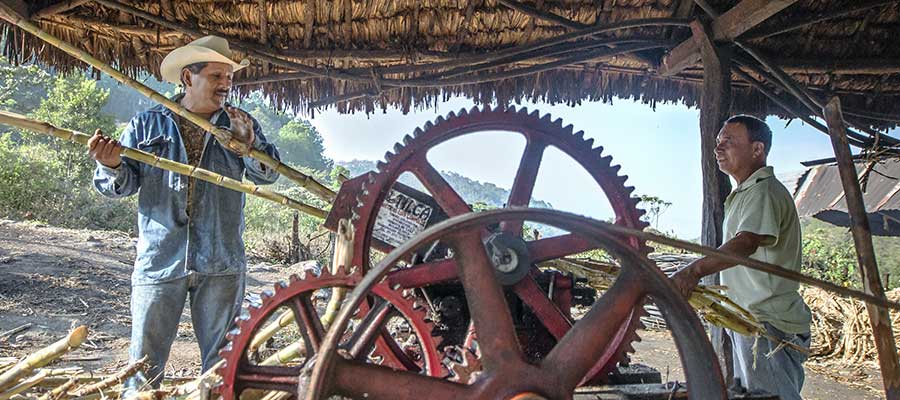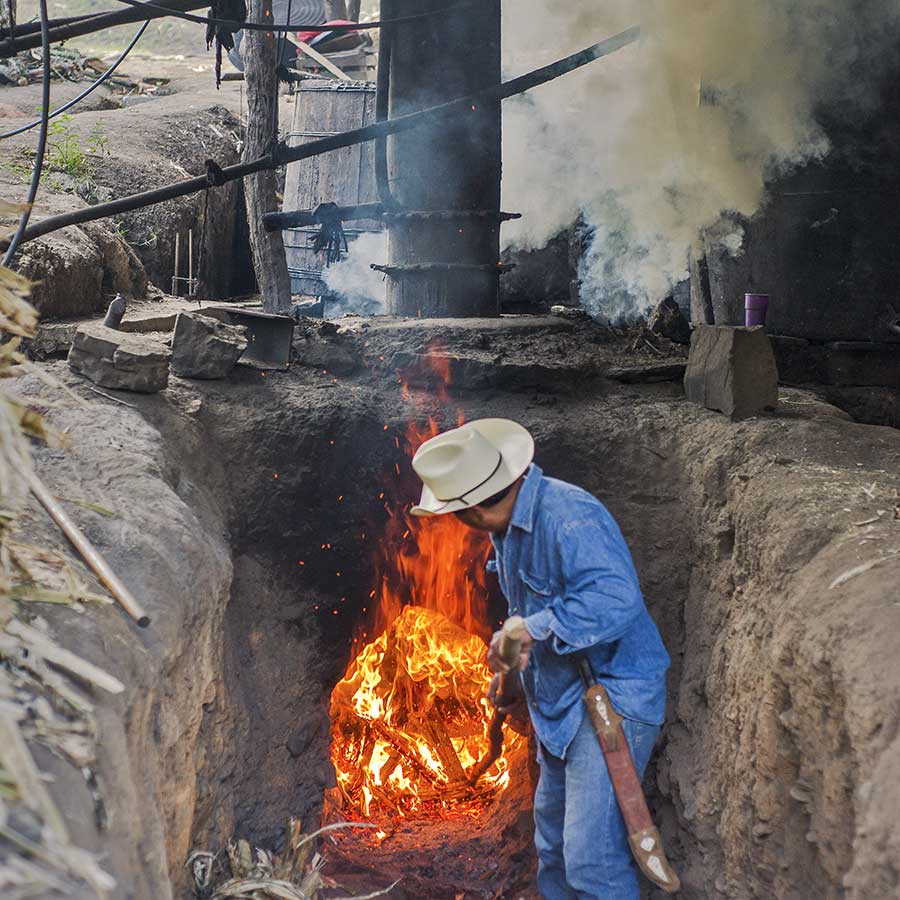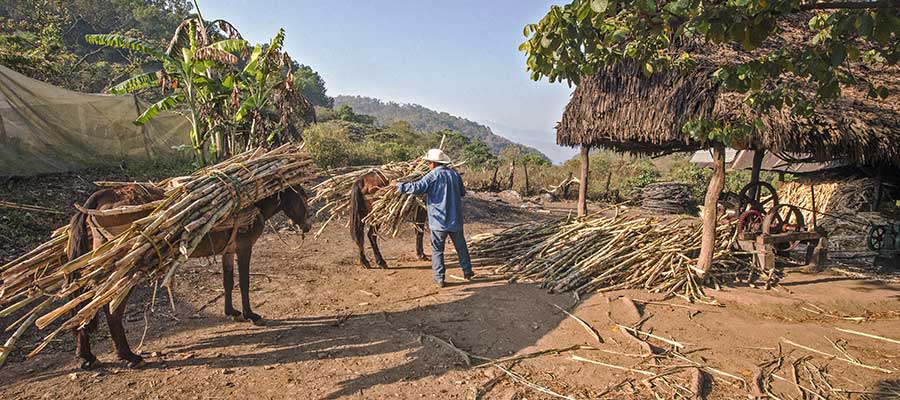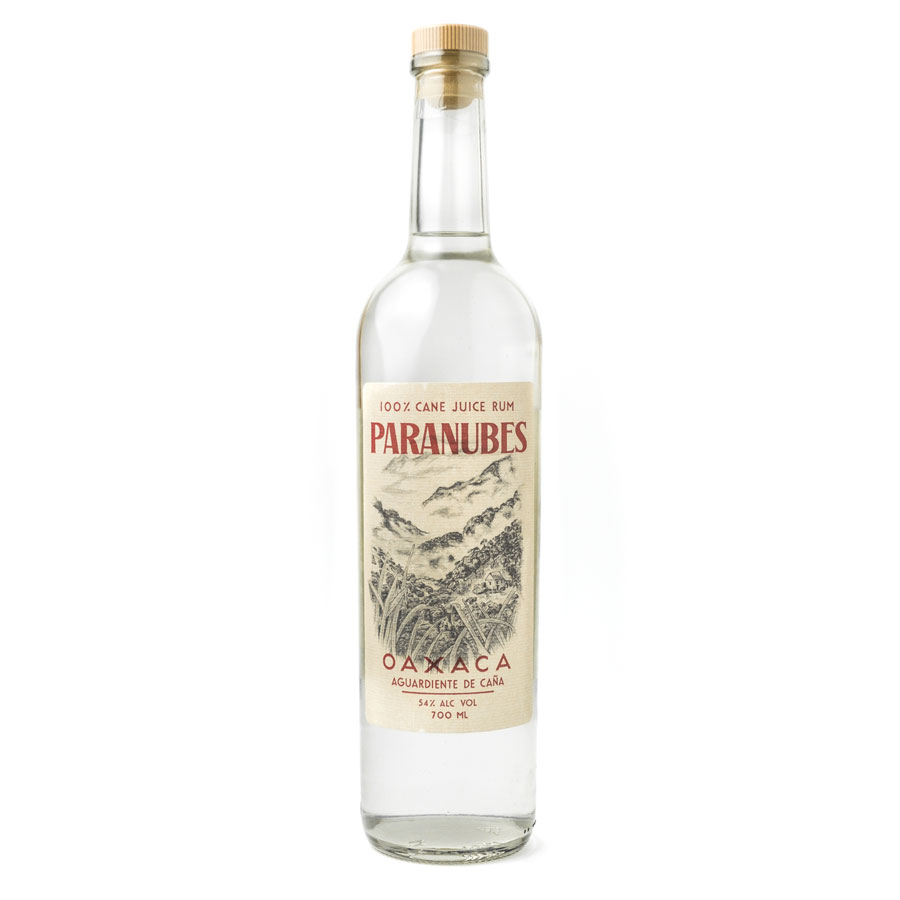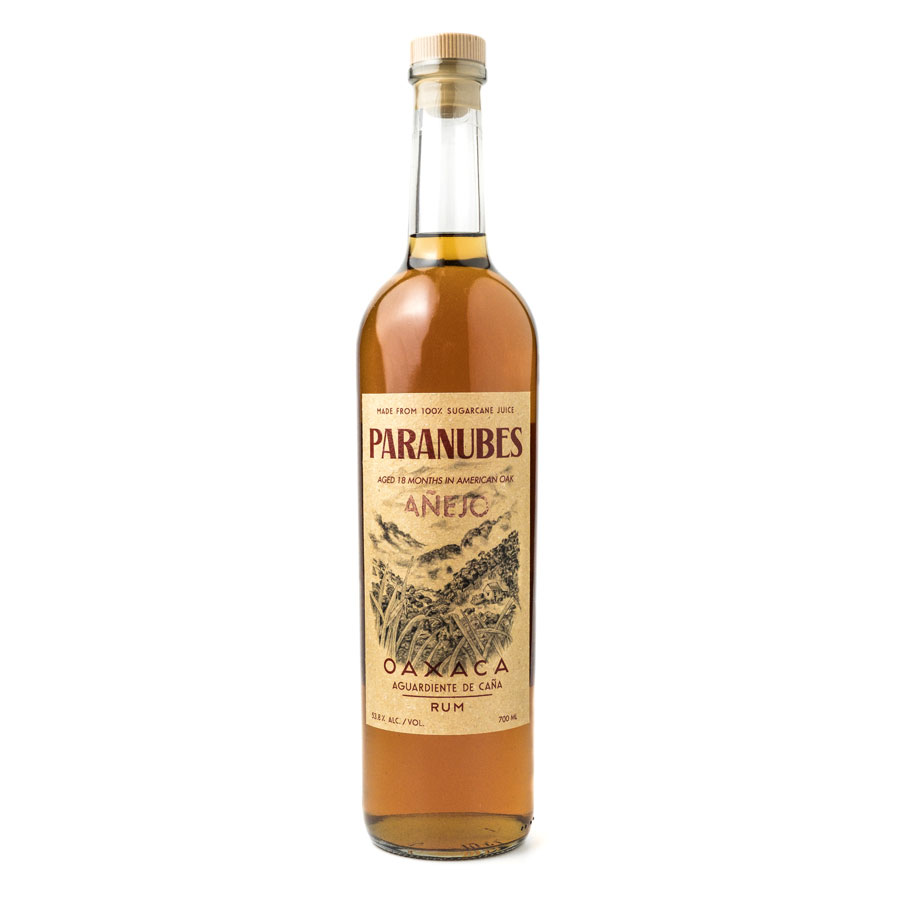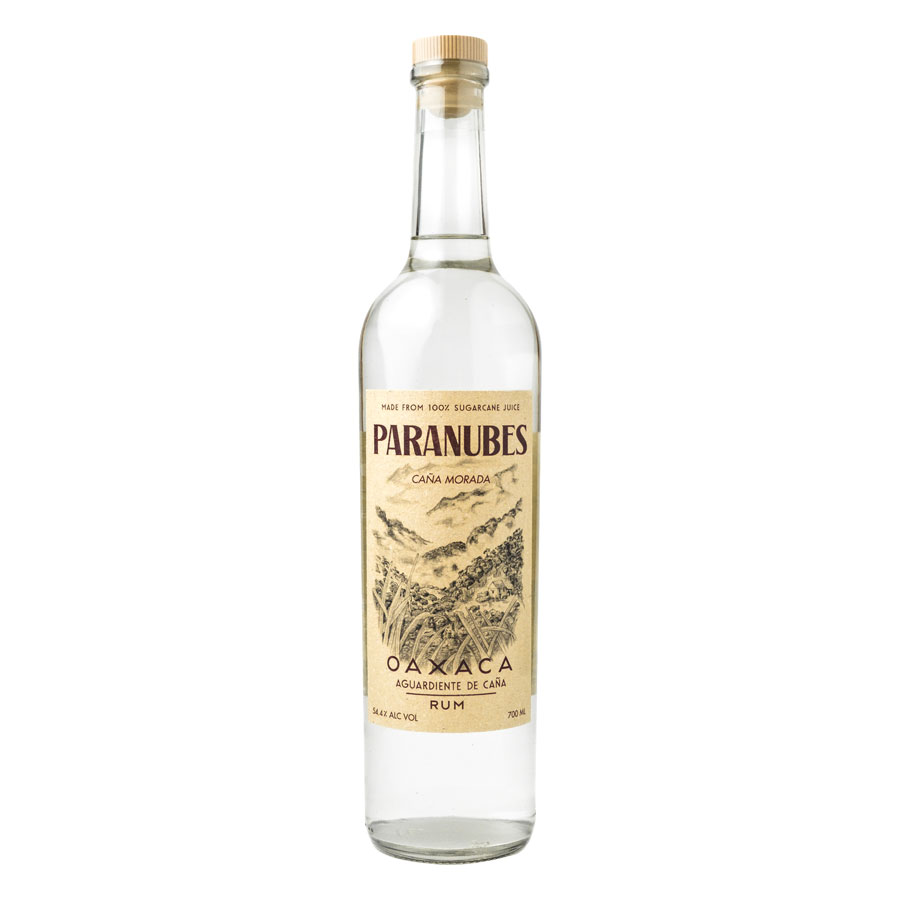How did a rum produced in a village deep in the Sierra Matazeca (southern Mexico) make its way to the shelves of French wine shops? Here is a real saga, which brings together an American surfer, a Mexican nurse, an aguardiente producer from the same country, and… divine intervention! The result is Paranubes, a pure cane juice rum that is sure to be talked about.
What if Mexico was the future of rum?
Best known for its tequila and mezcal, the North American state is nevertheless one of the leading sugarcane producing countries (4th behind Brazil, India and China).
An increasingly large proportion of this is used to produce rum, mostly from pure cane juice (El Destilado, Dreadhead, El Ron Prohibido, etc.), but also from molasses (Pixan). And a newcomer is making a name for himself on the Mexican rum scene, but also in the USA and in France.
It is Paranubes, a spirit from the Sierra Mazateca, in the north of the state of Oaxaca, which itself is in the south of Mexico. But how did this juice from a small village of a few dozen inhabitants come to compete with agricultural rums on the French market?
Judah’s journey
As is often the case, this story begins with a love story. That of Judah Kuper, a surf and snowboard fanatic who travels the world to satisfy his passion for the sport, and Valentina, a travelling nurse.
They fall in love with each other and soon get married. Judah then meets his in-laws, who produce Mezcal not far from the capital of the state of Oaxaca, but who are struggling to make a living from it. Judah decided to help them by creating the brand Mezcal Vago and to direct it towards exports.
The operation was a success, particularly in the USA, and very quickly the Garcia family, its pueblo and the surrounding community (the model was replicated in three villages) reaped the rewards. Vago is committed to paying producers a fair wage. In 2018, Mezcal Vago was sold to the American distributor Samson & Surrey, but Judah Kuper continues to work there.
Meeting José-Luis
In 2015, Judah picked up a man, whose name will not be remembered, travelling with a barrel of aguardiente de caña. He tasted the juice and thought that this might be his new project, making Mexican rum.
So he headed north to the mountains of the state of Oaxaca. There, the climate gradually becomes more humid, and the Agaves give way to sugar cane. He visited dozens of aguardiente producers, but found none that produced a brandy of sufficient quality, or that could be trusted 100%.
Close to giving up, he finally entered the valley of Rio Tuerto (7 hours drive from Oaxaca de Jimenez) where there is a small village in the middle of nowhere, where most of the inhabitants, indigenous people, do not speak Spanish, but Mazatec, an Amerindian language. At the same time in Rio Tuerto, José-Luis Carrrera is close to giving up his aguardiente production, which is struggling to feed his family.
The day before, he had gone to pray at an ancient Mazatec site for the gods to send him a sign. The next day he met an American with a biblical name who, after tasting his brandy, offered to distribute it internationally… Fate, surely. Eight years later, 20 hectares of sugar cane were devoted to the production of Paranubes. Thanks to the income from the sale of his rum, José-Luis can not only support his family, but also about twenty people in his pueblo.
A unique production method
In these mountains of the Sierra Mazateca (between 1000 and 2000 metres), perpetually veiled by clouds, both humid and hot, four varieties of sugar cane grow: Caña Criolla, Caña Dura, Caña Dulce and Caña Morada/Negra (José-Luis is unaware of their technical name), the first being used mainly because its yield is better and its flavour richer.
They are grown without chemical inputs, harvested twice a year, cut by hand, transported on horseback and crushed the same day. The cane juice (no imbibition is done) is then fermented using a very original ‘rolling’ method. The cane juice is poured into two pinewood vats, which are connected to a still. Indigenous yeasts obtained by maceration of the bark of a local tree, the Mezquite, are added.
The result is a cane wine with a strength of between 5 and 7%. Every two days, half of one of the two fermentation vats is distilled and fed into a still. This vat will be filled the same day with fresh juice. The next day, the same process takes place with the second tank… and so on. Fermentation therefore lasts between two days… and 4 months. After this time, the tanks are completely emptied and cleaned, before the process starts again.
Paranubes has two systems with two tanks and a still, so four tanks and two stills in total. The stills, heated with bagasse, consist of a 550-litre boiler and a rectifying column with 6 trays (all in copper). Five different cuts are made, and brandy at 85%, 65%, 55%, 45% and distillate wine at around 6% are collected in 18-litre glass jerry cans, called “garafones”. Every day, 90 litres are produced. Once José-Louis Carrera has accumulated 2,000 litres, they are assembled in vats and left to rest for 2 to 3 months.
An original route
The result is a blended rum, Paranubes Blanco, which is 54%. This permanent reference has just been joined by an 18-month-old rum, which has been resting in new American white oak barrels: Paranubes Anejo.
These two references will be supplemented over time by limited edition vintages, in particular mono-varietal vintages dedicated to each type of sugarcane grown in Rio Tuerto. The first to be released is Cana Morana (54.4%). In spring 2023, a new reference will be available in France, Añejo Ex-Tequila, which has 18 months in American oak barrels in which tequila has previously aged.
The number of aged vintages should also increase as José-Luis and Judah are currently renovating a building that will serve as an ageing cellar. All in all, Paranubes rums are a good alternative for lovers of pure cane juice rums. Less ‘classic’ than French agricultural rums, and less ‘barré’ than some pure juice rums that are a little too estery, there is no doubt that they will chart their own course in the years to come.
The Paranubes range:
Paranubes Blanco (70cl – 54%) – 53€ TTC
On the nose, beautiful notes of olive jar and freshly cut grass. On the palate, an earthy side with a finish of sugar cane. A nice long finish on spices and brown sugar, less drying than the agricultural rums.
Available from Rhum Attitude
Paranubes – Anejo 18 months (70cl – 53.8%) 75,90€ TTC
The earthy and olive jar notes of Paranubes Blanco are present on the nose, but accentuated. On the palate, vanilla and cocoa take the lion’s share. For lovers of rums with the characteristic notes of new casks.
Available from Rhum Attitude
Paranubes – Cana Morada (70cl – 54,4%)- limited edition. 55,90€ TTC
This is a sugar cane rum, with notes of ripe exotic fruits, and a leathery, almost animal side. In the mouth, the finish is clearly on brown sugar. Very addictive.
Available from Rhum Attitude

